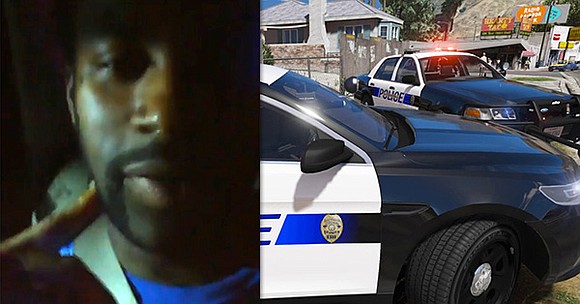Man Awarded $60K After Being Arrested for Refusing to Give Police His Name During Traffic Stop
Style Magazine Newswire | 5/14/2019, 8:33 a.m.
Bakersfield, CA — Robert Mitchell, a Black man who filed a lawsuit against the Bakersfield Police Department for allegedly making an “unconstitutional arrest” on him during a traffic stop two years ago, has reached a settlement with the city of Bakersfield which agreed to pay him $60,000.
Mitchell, who is 25-years old, and his friends were inside the car as they were leaving a convenience store in March 2017 when police stopped them, questioned them, and demanded their identifications. He started recording a video from his cell phone where he could be heard saying, “We’re pulled over on this lovely day.”
Mitchell refused to give his name and answer the police’s questions. He invoked the Fourth Amendment, which protects against unlawful search and seizure, and the Fifth Amendment, which protects against self-incrimination and unlawful prosecution.
One of the officers responded, “The law states that you have to give your name. Whenever a law enforcement officer stops a vehicle, they can identify everyone in the car.”
Mitchell continued refusing to provide his name even until he was ordered to get out of the car and detained by police for allegedly “hindering an investigation.” Mitchell kept on recording the incident and he was still asking the officers why they were pulled over but the officers couldn’t articulate their reasons.
Mitchell said he asserted his rights “because I’ve had past incidents where I’ve been arrested and it was unlawful and I didn’t know my rights,” he told NBC News.
Meanwhile, according to the complaint made by the American Civil Liberties Union District of Southern California, the officers stopped the group due to “trivial traffic violations” particularly an air freshener dangling from the rearview mirror. In some states, there are strict laws regarding that but in California, the police have their own discretion if they would enforce it.
The ACLU noted that, in case of a traffic stop, only the driver is required to show license and registration, not all the passengers. It is also stated that police can’t extend a traffic stop for further questioning unless they have reasonable suspicion that a crime has been committed. However, police ultimately arrested Mitchell, brought him to jail, where he was held for 12 hours.
Mitchell and the ACLU dropped the case after the city agreed to pay $60,000 settlement for the violations and damages against him.
“You have to respect the law and follow up and stand up for your rights,” Mitchell said. “If you just let things go on and if you see something going on in the community that’s wrong that officers are doing, you should seek help.”




